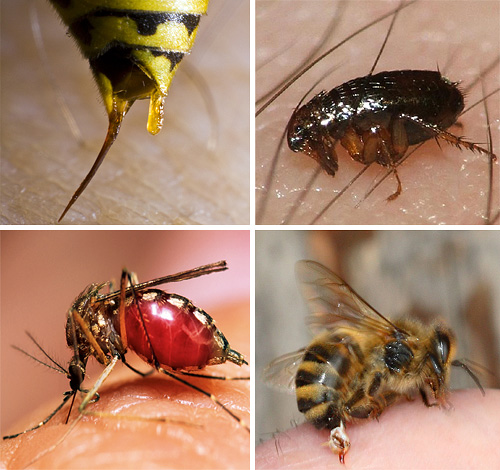
Did the insect bite? First of all, sit down, exhale and calm down. In our country, deadly insects are very few, and it is unlikely that you were lucky to meet with him. Next, we consider the rules of first aid for insect bites, which can significantly ease the severity of possible consequences for the human body. Even in cases where the bites are associated with the ingress of strong allergens in the wound (for example, hornet bites), the first aid provided will provide protection against a generalized allergic reaction and dangerous edema.
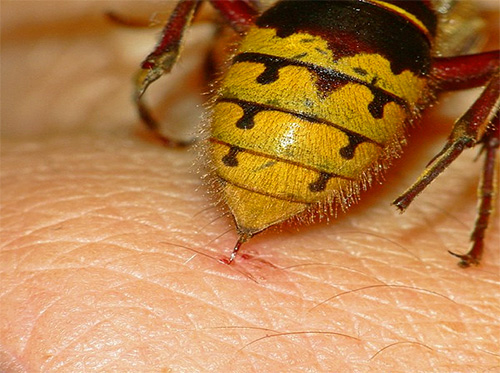
First of all, it is important to understand that the nature of first aid for insect bites to a certain extent depends on the type of insect that bit or sting. Therefore, even if the pain from the bite is very strong, the best thing you can do in the first seconds after the bite is not to run, waving your arms, but try to look at the offender.In the future, this can save time for treatment and help to take adequate measures to relieve itching and possible swelling.
By the nature of insect bites can be divided into two types:
- Bites for the purpose of defense. They are usually very painful, cause severe edema, and sometimes powerful allergic reactions, even deadly anaphylactic shock. So bite or sting wasps, hornets, bees, water bugs, some riders, certain species of ants.
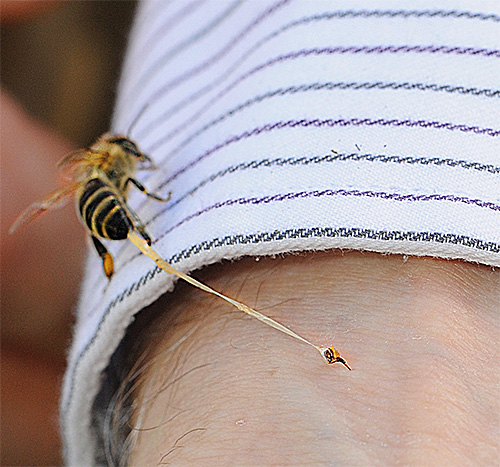
- Insect bites of parasites. Their goal is to be filled with blood in such a way that the victim doesn’t immediately notice it, so all the consequences of bites usually appear after a certain time. This group includes the bites of bed bugs, fleas, mosquitoes, lice, gadflies. Their effects are usually limited to slight redness and swelling, however, with mass bites, as well as in people prone to allergies can lead to very serious problems.
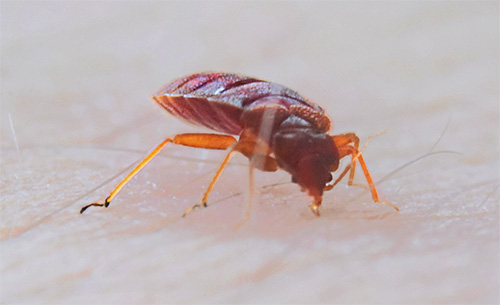
On a note
In most cases, under the insect bites, we are accustomed to understand also, for example, the bites of spiders and centipedes. However, neither those, nor others from the point of view of a biologist (more precisely, an entomologist) are typical insects (for example, spiders are not Spider-like insects).However, the first-aid measures for their bites are quite similar to those for true insect bites, so we will further simplifyly talk about all such exceptions as insects.
And now in steps: what to do after insect bites ...
First steps: neutralize the poison and remove part of it from the wound
The first thing to do if an insect has bitten is to try to neutralize the poison and remove at least part of it from the wound. In the case of different insects, this is done differently.
For example:
- When a bee stings, it is necessary to remove the sting from the wound as soon as possible (as the muscles of the bag of poison continue to contract for a long time, gradually introducing more and more poison into the wound). Then you need to try to suck the poison, spitting it, and wash the wound with soapy water. If the sting is too deeply seated in the skin, it can be pulled out with a needle washed in alcohol or heated on a fire.
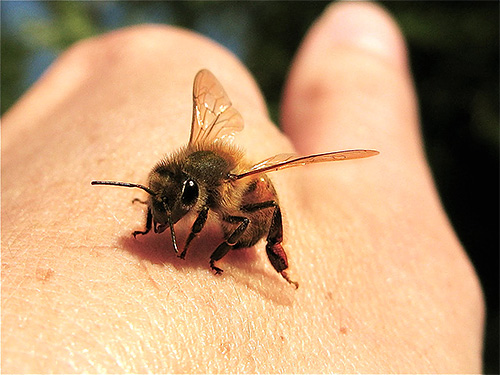
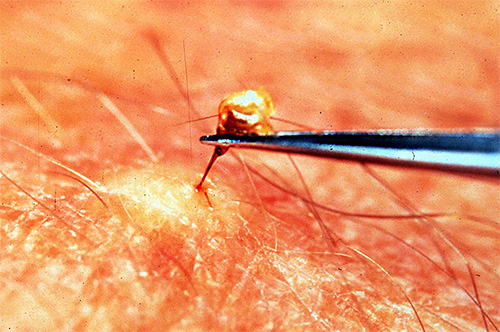
- If you are bitten by a wasp or hornet, you should not look for a sting - these insects, unlike bees, do not leave their sting in the skin (and can, incidentally, sting repeatedly). You can try to suck part of the poison from the wound, then put on it a piece of apple or rinse with vinegar.Sugar or urine also work well - they pull out poison.
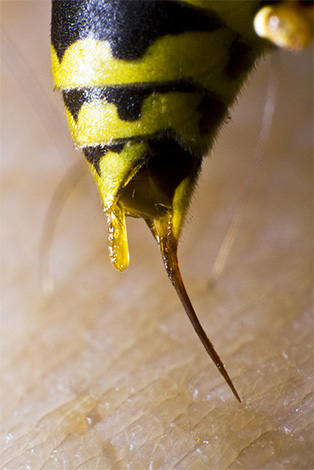
- First aid for the bite of poisonous spiders may consist in cauterizing the wound with just an extinct match. Their poison quickly decomposes under the influence of high temperature. This method will only help during the first few minutes after the bite.
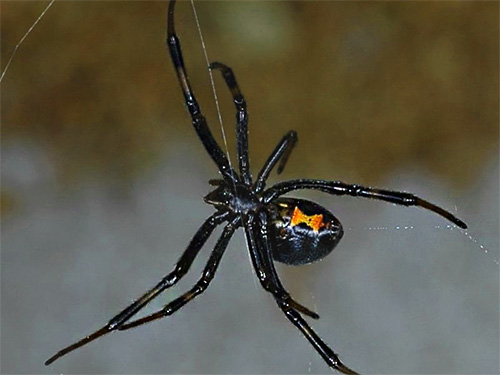
In any case, sucking poison out of the wound is a universal action. Even if an unknown insect has bitten, it can be done boldly - in the mouth cavity, the poison itself will not work (if there are no wounds, scratches or sores). It is only important to constantly spit saliva and at the end of the procedure thoroughly rinse your mouth with water.
When parasitic insect bites, it is not poison that enters the wound, but saliva with a special enzyme that prevents blood from clotting. In addition, for example, fleas or ticks can at the same time transmit pathogens of very dangerous diseases, and bedbugs and mosquitoes inject a secret into the wound, which after some time causes severe itching.
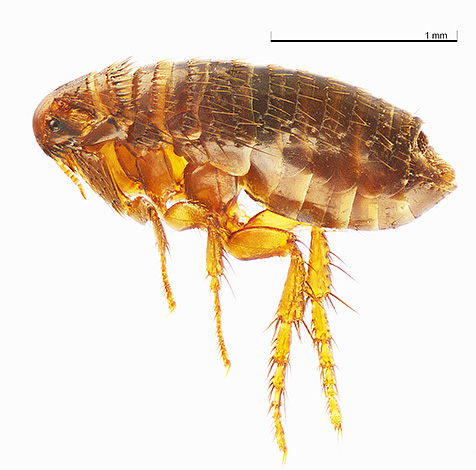
If the bite is smeared with alcohol as early as possible, the consequences are usually less pronounced.
If an insect has bitten, in no case should you try to squeeze out the poison from the wound with your fingers: this will only lead to increased blood flow and more rapid spread of the poison under the skin.
Prevent poison from spreading through tissues
Emergency care for the bites of many insects involves the imposition of a cold compress on the wound. This tool helps to get rid of the serious consequences even with bites of stinging insects, such as hornets, wasps, bees. Water, ice, metal or stone can be used as a coolant - anything that has a temperature below body temperature.

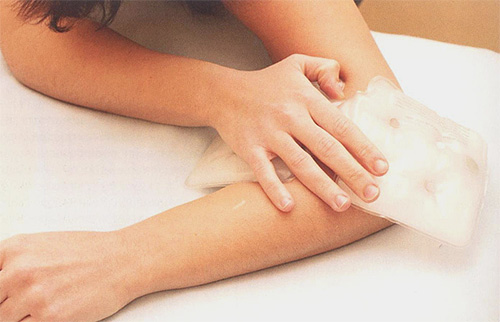
The main goal of this step is to prevent the development of extensive edema, which can sometimes pose a serious danger to a person’s life (for example, when hornet bites in the face, neck, throat).
When parasite insect bites, compress is not necessary, but if a person is prone to severe allergies, this measure can also give its positive effect.
How to avoid intoxication and alleviate the bite symptoms?
After completing the above first aid measures after an insect bite, you can then proceed to the actions to relieve symptoms of poisoning and disinfect the bite site:
- Disinfect the wound: smear it with alcohol, hydrogen peroxide, green paint or a strong solution of potassium permanganate.
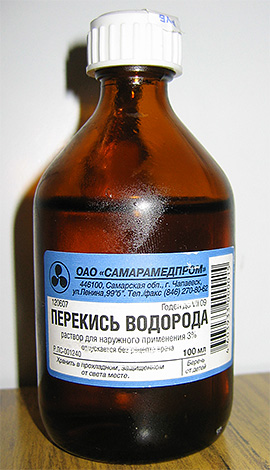
- To prevent the development of an allergic reaction: a thin wound and area 3-4 cm from it should be smeared with Soventol or Fenistil gel.In the absence of these drugs, it is possible to treat the wound with the juice of the leaf of the plantain or dandelion, attach a tomato or sliced parsley root, and drop it with the juice of garlic.
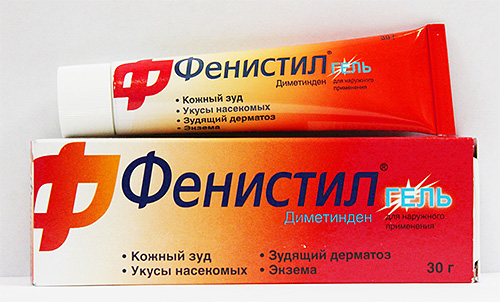
- To soothe the pain, you can lubricate the wound, for example, with Insectline balm, Gardex or Moskitol.
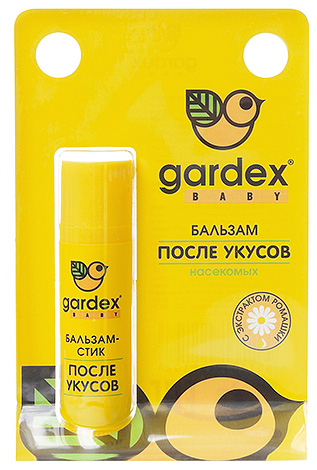
In the case of stinging insect bites, it is desirable to drink a lot and often, which will help to remove the general symptoms of intoxication.
First aid for insect bites often also involves the use of special antihistamines (for allergies). They should be taken only when there are clear signs of extensive edema or a rash appears on the body, lymph nodes increase, heartbeat quickens, shortness of breath appears. In this case, when an insect bite is necessary:
- Take a tablet of Suprastin or Loratadine.
- Or you can take a Prednisolone tablet.
- Finally, in the absence of all of the above in the home first aid kit, you can drink a pill Dimedrol.
If there are no acute symptoms of an allergic reaction after being bitten by an unknown insect, these drugs should not be drunk.
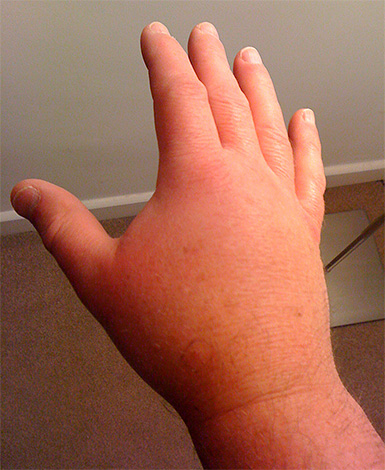
If a child has been bitten by an insect, you should do the same, but especially carefully monitor its condition.If a child cries, screams and complains of pain - this is normal. It is bad if he suddenly calms down, stops talking, tries to lie down or sit down, and begins to choke. In this case, you need to urgently take the child to the hospital or call an ambulance.
Mass bites: what to do?
If copiously bitten blood-sucking insects, wounds should be washed with soap and then smeared with alcohol. When children bite at children, you should also monitor the general well-being of the child and the temperature of his body (you may need to see a doctor immediately).
It is more dangerous if bees, wasps and especially hornets bite massively, for example, when their nest was disturbed.
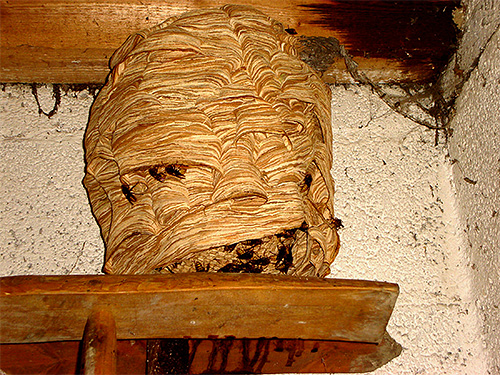
Their bites are very allergenic, and even 4-5 bites can be enough for the development of pain or anaphylactic shock. Each bite in this case should be treated in the same way as a single bite, but especially carefully monitor the general condition of the victim.
About especially severe cases it is worth talking separately.
First aid in especially severe cases
First aid for bites of especially poisonous insects does not differ from that in attacks of ordinary hornets or poisonous spiders.
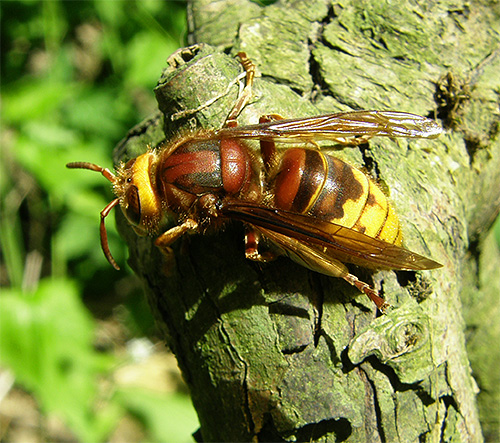
In our country, the bites of giant hornets living in Primorye, earthen wasps, karakurt spiders, scorpions in the south of the country, as well as giant scolopendras are especially dangerous. Such dangerous insect bites may require quick delivery of the bitten to intensive care. In the case of laryngeal edema, it may be necessary to perform a conicotomy (incision of the throat in the cricoid cartilage) and insert a hollow tube into the opening to allow the person to breathe. But it is better if this does not come to this.
In the tropics, the bites of many spiders, wasps, and centipedes are dangerous. Ant-bullet is considered one of the most dangerous insects in South America - the pain from its bite is many times stronger than the pain from the bite of our hornet. Before traveling in the tropics should be acquainted with the main biting insects and be ready to provide first aid in their attack. But the main efforts for severe bites should be directed to the speedy delivery of the injured to the hospital.
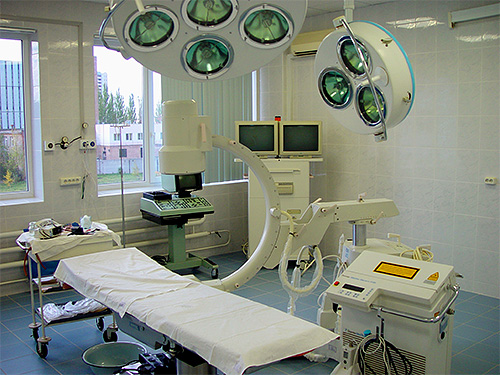
It is interesting
Those who are lucky to be bitten by different types of spiders, argue that the bite of karakurt is not felt at all. Especially since it happens usually in a dream, when a person turns and presses the spider.But the consequences of this bite are very serious. The bite of a tarantula, on the contrary, is extremely painful, but is comparable in severity to a bee sting.
In conclusion, we will give a list of the tools that you need to have with you when you go out into nature to ensure a quick response to any insect bites.
Memo
Get ready for insect bites:
- If you have a severe allergy to insect bites - always carry with you antihistamines and an allergist's opinion (for doctors who will come to help you with an ambulance).
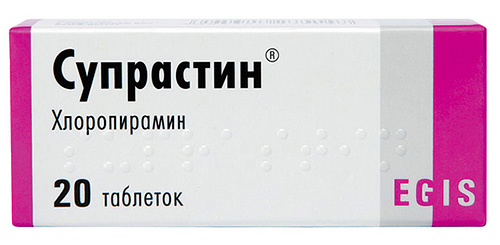
- Always carry with you the Fenistil gel or its analogs.
- When traveling to places infested with parasites, inoculate.
- Do not make sudden movements near insects, do not lie down on the ground without checking the absence of insects on it.
- Have matches with you, as well as anything alcohol-containing.
And remember: when biting unknown insects, a person suffers more from panic than from the bite itself. So be calm and reasonable, but assist yourself or your family quickly and decisively.
Useful video about insect allergy: what to do if a wasp stings
What to do if you are allergic to insect bites

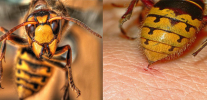
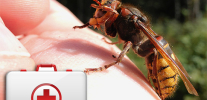
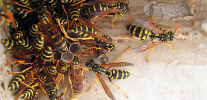
Recently experienced such a fear. The horror is simple. My husband was bitten by some kind of fly and his hand was swollen, then his head started to hurt, I immediately took him to the hospital, they took a drip. I never would have thought ...
The necessary and useful information. Thank.
Thanks for the information.